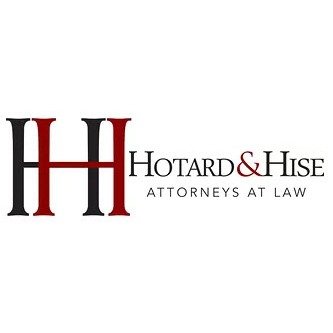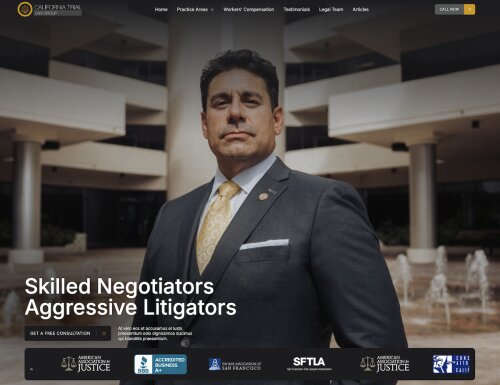Best Property Damage Lawyers in Georgia
Share your needs with us, get contacted by law firms.
Free. Takes 2 min.
Or refine your search by selecting a city:
List of the best lawyers in Georgia, United States
United States Property Damage Legal Questions answered by Lawyers
Browse our 1 legal question about Property Damage in United States and read the lawyer answers, or ask your own questions for free.
- MOVING COMPANY DAMAGED RENTAL HOME, FURNITURE AND NEW HOME
- MOVING COMPANY DAMAGED WALLS AND FURNITURE IN TWO HOUSES, THEY DIDNT USED PACKING BLANKETS OR MOVING EQUIPMENT, I FILED A DAMAGE CLAIM MID MOVE, AND RELIEVED THE WORKERS EARLY FROM SCHEDULED TIME TOOK PICS AND SUBMITTED TO THE MOVING COMPANY, NOW THE MOVING COMPANY IS INSINUATING WE CAUSED THE DAMAGE,... Read more →
-
Lawyer answer by T & A Legal
Hello, sorry about the damage to your walls and furniture. The moving company may be liable for a breach of contract or negligence. However, their liability will be determined largely by the contract between you and the moving company.Please note...
Read full answer
About Property Damage Law in Georgia, United States
Property damage law in Georgia covers a broad range of legal issues involving harm or destruction to personal or real property. This area of law is designed to help individuals and businesses seek compensation when their property is damaged due to another party’s actions or negligence. Common instances include car accidents, damage to homes or buildings, vandalism, and natural disaster claims. When damage occurs, property owners may be entitled to repairs, replacement, or monetary compensation, depending on the circumstances and available insurance coverage.
Why You May Need a Lawyer
While some minor property damage claims can be resolved directly with an insurance company or the responsible party, several situations may require legal help:
- Insurance companies deny valid property damage claims or offer inadequate settlements
- The responsible party refuses to pay for damages
- The property damage is extensive or complex, such as involving multiple parties
- Disputes arise regarding fault or liability
- Evidence collection and preservation is necessary for your claim
- You are facing counterclaims or accusations of causing damage yourself
- The damage is related to leased or rented property, prompting landlord-tenant disputes
- Your property was harmed during a criminal act, such as theft or vandalism, and involvement with law enforcement is required
A qualified attorney can help you navigate the process, gather necessary documentation, negotiate with insurance adjusters, and ensure compliance with local laws.
Local Laws Overview
Property damage in Georgia is primarily governed by state statutes and case law. Key aspects to be aware of include:
- Statute of Limitations: Georgia law allows four years from the date of the property damage to file a lawsuit for most property damage claims. However, claims involving contracts (such as insurance) may have shorter limitations based on the policy terms.
- Comparative Negligence: If both parties share some blame for the damage, Georgia follows a modified comparative negligence rule. If you are less than 50 percent at fault, you may still recover damages but your compensation will be reduced by your percentage of fault.
- Insurance Requirements: Georgia law requires drivers to have liability insurance, which covers damage to others’ property caused by auto accidents. Homeowners and renters insurance are optional but often required by lenders or landlords.
- Filing Claims: Property owners must follow specific steps and deadlines when filing insurance claims, including prompt notice to the insurer and documentation of damage.
- Criminal Acts: Willful or malicious property damage, such as arson or vandalism, is both a civil and criminal matter. Victims may seek restitution through the criminal courts in addition to or instead of civil claims.
Frequently Asked Questions
What qualifies as property damage in Georgia?
Property damage refers to physical harm or destruction to tangible property, such as vehicles, homes, personal belongings, or commercial buildings, whether caused accidentally or intentionally.
How long do I have to file a property damage lawsuit in Georgia?
Generally, you have four years from the date of the incident to file a lawsuit, but certain types of claims, such as those involving insurance contracts, may have shorter deadlines.
What should I do right after my property is damaged?
Document and photograph the damage, preserve any relevant evidence, notify your insurance company promptly, and, if necessary, file a police report. Consult an attorney if the situation is complex or if significant value is involved.
Can I sue someone directly for damaging my property?
Yes, you can file a civil lawsuit against the responsible party. If the damage happened due to a crime, you may also be able to recover restitution as part of a criminal case.
Do I need a police report to file a property damage claim?
While not always required, having a police report can help substantiate your claim, especially for vehicle accidents, vandalism, or other criminal acts.
How does insurance handle property damage claims?
After you report the incident, your insurance company will typically investigate, assess the loss, and offer compensation if the claim is valid and covered under your policy terms.
What if my insurance claim is denied?
You may appeal the denial, request a written explanation, gather additional evidence, or consult an attorney to negotiate or pursue legal action if necessary.
What is comparative negligence and how does it affect my claim?
If both you and the other party contributed to the damage, Georgia’s comparative negligence law reduces your compensation by your percentage of fault, provided you are less than 50 percent at fault.
Can property damage be part of a personal injury lawsuit?
Yes, property damage is often included in personal injury lawsuits arising from events like car accidents, allowing you to recover for both physical injuries and property loss.
What if the responsible party has no insurance?
You may pursue a direct lawsuit against the individual, but collecting damages can be challenging. Your own uninsured or underinsured coverage may help if the incident involves a vehicle.
Additional Resources
Several resources and organizations can assist in property damage matters:
- Georgia Department of Insurance - Provides information on insurance claims and consumer rights
- Consumer Protection Division of the Georgia Attorney General's Office
- Georgia Legal Services Program - Offers free legal help to eligible low-income residents
- Local police or sheriff’s office - For reporting criminal property damage
- Small Claims Court - For disputes involving smaller amounts of property damage (typically up to 15,000 dollars in Georgia Magistrate Courts)
- Private attorneys specializing in property damage or insurance law
Next Steps
If you are dealing with property damage in Georgia and need legal assistance, consider taking the following steps:
- Document the damage thoroughly with photos, videos, and written records
- Notify your insurance company and file a claim promptly if applicable
- Gather all related documents, such as proof of ownership, repair estimates, and communication with the other party or insurer
- Consult with a qualified Georgia property damage attorney, especially for significant losses, denied claims, or disputes about liability
- Review your insurance policy and any relevant agreements or contracts
- If the value of your claim is within the limit for small claims court, consider filing your own case if you are comfortable representing yourself
- Stay organized and keep records of all communications and steps taken
Understanding your rights and local laws is essential. Taking swift, informed action can help you recover your losses and protect your interests.
Lawzana helps you find the best lawyers and law firms in Georgia through a curated and pre-screened list of qualified legal professionals. Our platform offers rankings and detailed profiles of attorneys and law firms, allowing you to compare based on practice areas, including Property Damage, experience, and client feedback.
Each profile includes a description of the firm's areas of practice, client reviews, team members and partners, year of establishment, spoken languages, office locations, contact information, social media presence, and any published articles or resources. Most firms on our platform speak English and are experienced in both local and international legal matters.
Get a quote from top-rated law firms in Georgia, United States — quickly, securely, and without unnecessary hassle.
Disclaimer:
The information provided on this page is for general informational purposes only and does not constitute legal advice. While we strive to ensure the accuracy and relevance of the content, legal information may change over time, and interpretations of the law can vary. You should always consult with a qualified legal professional for advice specific to your situation.
We disclaim all liability for actions taken or not taken based on the content of this page. If you believe any information is incorrect or outdated, please contact us, and we will review and update it where appropriate.
Browse property damage law firms by city in Georgia
Refine your search by selecting a city.
















